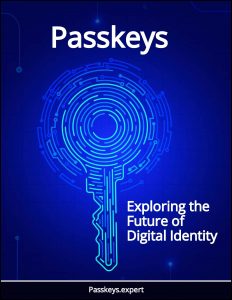Passkeys: The Future of Identity
Passkeys are revolutionizing the concept of identity and paving the way for a secure and convenient future.
 In today’s digital world, identity theft and unauthorized access to personal information are significant concerns.
In today’s digital world, identity theft and unauthorized access to personal information are significant concerns.
Traditional methods of authentication, such as passwords and PINs, are no longer sufficient to protect our identities.
However, a new solution is emerging – Passkeys. In this article, we will explore how Passkeys are revolutionizing the concept of identity and paving the way for a secure and convenient future.
As technology continues to advance, the need for secure and convenient methods of identity verification becomes increasingly important. Passkeys offer a promising solution by leveraging unique characteristics of individuals to authenticate their identities. Let’s delve deeper into what Passkeys are and how they are transforming the way we establish and protect our identities.
What are Passkeys?
Passkeys are digital credentials that uniquely identify individuals based on their biological or behavioral characteristics. Unlike traditional passwords or PINs, Passkeys cannot be easily guessed or stolen. They provide a more secure and reliable way to authenticate users.
Advantages of Passkeys
Passkeys offer several advantages over traditional authentication methods:
- Enhanced Security: Passkeys utilize unique biological or behavioral traits, such as fingerprints, iris patterns, or voice recognition, making them extremely difficult to forge or replicate.
- Convenience: Passkeys eliminate the need to remember complex passwords or carry physical tokens. Users can authenticate themselves effortlessly using their own unique characteristics.
- Reduced Fraud: Passkeys significantly reduce the risk of identity theft and fraud, as they cannot be easily stolen or shared.
- Multi-Factor Authentication: Passkeys can be combined with other authentication factors, such as passwords or tokens, to provide an additional layer of security.
Types of Passkeys
There are various types of Passkeys that can be used for identity verification:
- Fingerprint Recognition: This Passkey type uses unique patterns on an individual’s fingertips to authenticate their identity.
- Iris Recognition: Iris recognition Passkeys analyze the patterns in an individual’s iris to establish their identity.
- Voice Recognition: By analyzing an individual’s voice characteristics, voice recognition Passkeys can verify their identity.
- Facial Recognition: Facial recognition Passkeys use advanced algorithms to analyze facial features and authenticate individuals.
- Behavioral Biometrics: Passkeys based on behavioral biometrics, such as typing patterns or gait analysis, can identify individuals based on their unique behavioral traits.
Implementation of Passkeys
Implementing Passkeys requires a combination of hardware and software components:
- Biometric Sensors: Devices equipped with biometric sensors, such as fingerprint scanners or iris scanners, capture the necessary data for Passkey verification.
- Secure Storage: Passkeys need to be securely stored to prevent unauthorized access. Encryption techniques and secure hardware modules are used to protect Passkey data.
- Authentication Algorithms: Advanced algorithms analyze the captured biometric data and compare it against the stored Passkey information to authenticate the user.
- Integration with Systems: Passkeys need to be integrated into existing systems, such as smartphones, computers, or access control systems, to enable seamless authentication.
Security Considerations
While Passkeys offer enhanced security, there are still some considerations to keep in mind:
- Privacy Concerns: Collecting and storing biometric data raises privacy concerns. Organizations must ensure proper consent and secure handling of this sensitive information.
- Accuracy and Reliability: Passkeys rely on the accuracy and reliability of biometric sensors and algorithms. False acceptances or rejections can impact the user experience and security.
- Backup and Recovery: In case of Passkey loss or system failure, backup and recovery mechanisms should be in place to prevent lockouts and ensure continuity.
- Continuous Innovation: As technology advances, attackers may find new ways to bypass Passkey systems. Continuous innovation and updates are necessary to stay ahead of potential threats.
The Future of Passkeys
Passkeys are rapidly gaining popularity and are expected to play a significant role in the future of identity verification. As technology evolves, we can anticipate the following advancements:
- Passkey Integration: Passkeys will become seamlessly integrated into various devices and systems, including smartphones, wearables, and IoT devices.
- Improved Accuracy: Advancements in biometric sensors and algorithms will enhance the accuracy and reliability of Passkey authentication.
- Passkey Standardization: Standardization of Passkey formats and protocols will enable interoperability across different platforms and systems.
- Biometric Fusion: Combining multiple biometric traits, such as fingerprint and iris recognition, will provide even stronger authentication methods.
- Passkey as a Service: Passkey solutions will be offered as cloud-based services, enabling easy deployment and management for organizations.
Conclusion
Passkeys are revolutionizing the concept of identity verification by providing a secure and convenient alternative to traditional authentication methods. With their enhanced security, ease of use, and potential for future advancements, Passkeys are poised to become the future of identity. Embracing Passkeys will not only protect individuals and organizations from identity theft but also streamline authentication processes, leading to a more secure and efficient digital world.




You have observed very interesting points!
ps nice site.Raise blog range